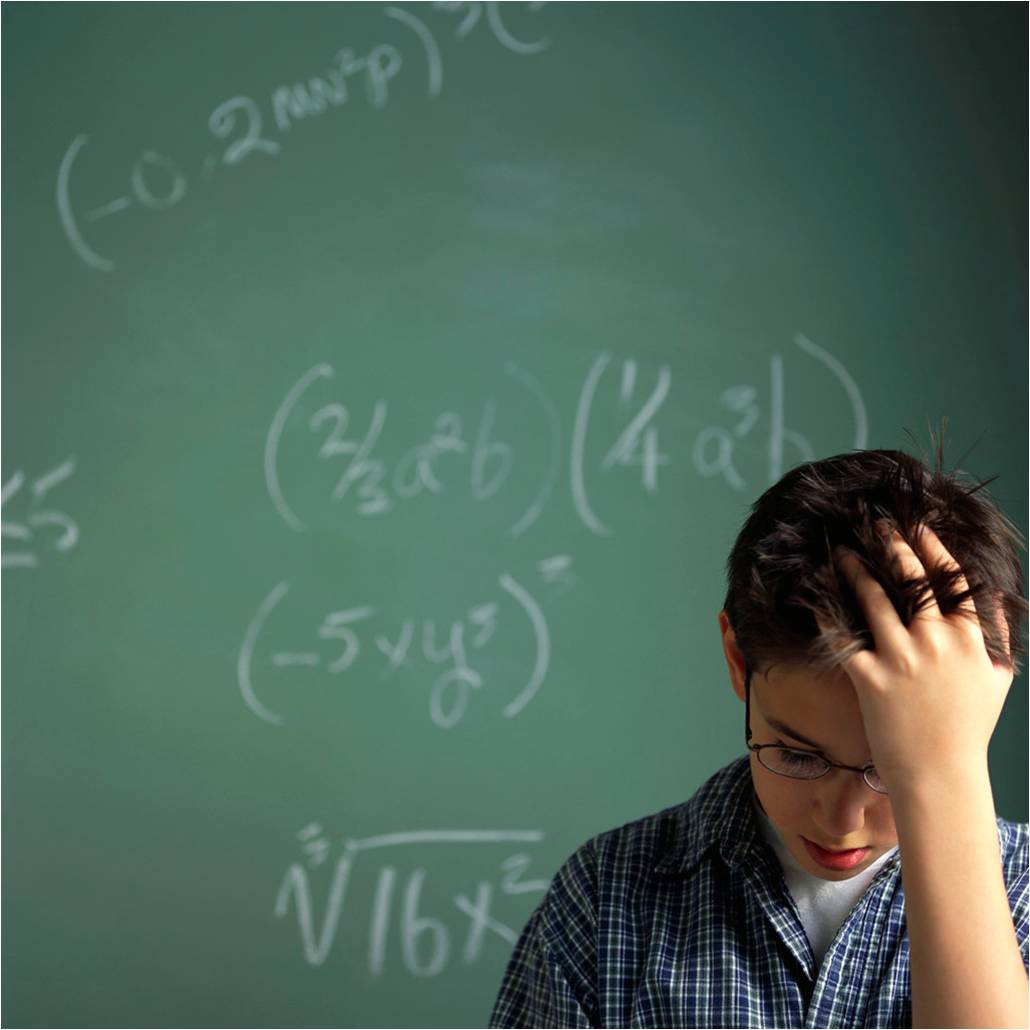Dyscalculia

Similarities Between Dyscalculia and Dyslexia
* A specific learning disability
* Brain-based
* Hereditary
* Equally likely in girls and boys
Definition
The word Dyscalculia is composed of the the Greek prefix "Dys" for difficult and the Latin word "Calculare", which means "to count". Thus the word literally means difficulty counting, but in common usage today it means extreme difficulty learning or comprehending mathematics/arithmetic. Sometimes it is referred to as math dyslexia.
According to the US National Center for Learning Disabilities, it refers to a wide range of lifelong learning disabilities involving math, varies from person to person and affects people differently at different stages of life. As with reading, when basic math skills are not mastered early, more advanced math becomes extremely difficult for teens and adults. It often occurs together with dyslexia, dysgraphia and Attention Deficit Hyperactive Disorder (ADHD), though it is a separate learning disorder.
Symptoms & Signs of Dyscalculia
- Delay demonstrating the ability to count
- Delay in ability to perform very simple addition and subtraction
- Slow to memorize arithmetic facts
- Lack number-sense such as understanding immediately and intuitively that 6 is a larger number than 5
- Difficulty using finger counting
- Difficulty understanding place value
- Great difficulty memorizing times tables, understanding reasoning methods and multi-step calculation procedures such as algebra
- Anxiety while performing math and a dislike of the subject
Cause
A difference in brain
function or structure in the area most related to math ability is believed to be the primary cause. Less research has been conducted on the disability than for reading disorders, but recent studies show
either less grey matter or less neural activity in the 'intra-parietal
sulcus', an area of the brain known to be involved in mathematical reasoning.
In some cases the disorder can arise after birth, usually the result of a brain injury to the same or related regions of the brain.
Strategies for Home and School
The Latest Research
Approximately half of those with dyscalculia have dyslexia. A July 2014 study from Oxford university suggests that a strong genetic component does link math and reading abilities
- Talk to your school. Although standardized tests for math disabilities are not usually administered by public schools, consult with teachers and ensure that their Individualized Education Program (IEP) includes extra math help for your child
- Private one on one home tutoring
- Master basic skills before moving on to higher order skills. Don't try algebra before basic addition, subtraction, division and multiplication skills are mastered
- Use multisensory math teaching methods (visual, tactile, auditory, movement)
- Use colored pencils and graph paper instead of blank lined paper
- Allow extra time
- Provide lots of positive feedback and encouragement
- Use the latest technology. Not only calculators, but online math tools and drills. For example there are many good free applications for learning multiplication tables. See below for more detail.
Software options
Computer software for teaching math is now often better than any traditional pen and paper teaching program. Properly designed software offers a number of advantages over traditional math teaching systems including:
- Much lower costs (very good for parents on a budget)
- Easy
to incorporate appropriate teaching methods right into the software
itself - such as teaching in step by step sequences, without progressing
until mastery is achieved at each stage
- Immediate feedback
- Automatic adjustment of difficulty
- Infinite patience
- Ability for students to work independently
- Effortless and detailed progress tracking built in
- Reduces amount of training required to deliver a program
- Develops keyboarding skills and computer literacy
- Fun! Software is often game based, making reading fun—exactly what it should be
Deciding which software application to use can be overwhelming since there are dozens available for teaching any mathematical concept, but not all are appropriate for children with learning disabilities.
Final calculations
Dyscalculia refers to a range
of learning disabilities involving math
and affects people differently at different stages of life. It often occurs together with
dyslexia, dysgraphia
and attention
deficit hyperactive disorder (ADHD), though it is a separate learning
disorder. Intensive multisensory instruction and the latest software provide opportunity for struggling learners to master mathematics.
Return to the top of Dyscalculia
- Home ›
- Dyscalculia
New! Comments
Share your thoughts or ideas! Leave us a comment in the box below. You can post it at this site only or on Facebook too, it's up to you.